
Ticino, sometimes Tessin, officially the Republic and Canton of Ticino or less formally the Canton of Ticino, is one of the 26 cantons forming the Swiss Confederation. It is composed of eight districts and its capital city is Bellinzona. It is also traditionally divided into the Sopraceneri and the Sottoceneri, respectively north and south of Monte Ceneri. Red and blue are the colours of its flag.
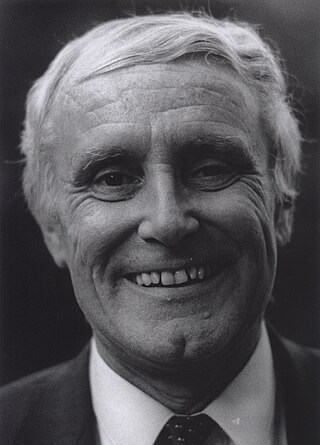
Flavio Cotti was a Swiss politician who served as member of the Federal Council from 1986 to 1999. He was a member of the Christian Democratic People's Party from the canton of Ticino. In the 1990s, Cotti led the Swiss government's unsuccessful attempts to further Switzerland's political integration into the European Union. He was President of the Confederation in 1991 and 1998 and headed the departments of Home Affairs and Foreign Affairs.

Stefano Franscini was a Swiss politician and statistician. He was one of the initial members of the Swiss Federal Council elected in 1848 and Switzerland's first native Italian speaking federal councillor. Franscini was affiliated to the Liberal Radical Party of Switzerland. During his office tenure he held the Department of Home Affairs. Important elements of his political legacy include political reforms in the Ticino during the 1830s and 1840s, Switzerland's first federal population census in 1850, and the creation of the Swiss Federal Institute of Technology in 1854/1855.

Lugano is a city and municipality within the Lugano District in the canton of Ticino, Switzerland. It is the largest city in both Ticino and the Italian-speaking region of southern Switzerland. Lugano has a population of 62,315, and an urban agglomeration of over 150,000. It is the ninth largest Swiss city.

The Swiss Party of Labour is a communist party in Switzerland.

The Ticino League is a regionalist, national-conservative political party in Switzerland active in the canton of Ticino.
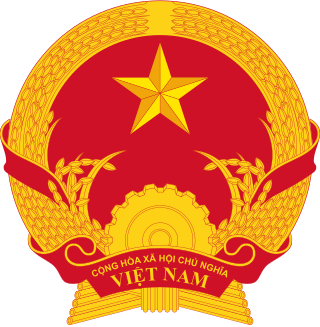
The president of the Socialist Republic of Vietnam is the head of state of Vietnam, elected by the National Assembly of Vietnam from delegates of the National Assembly. Since Vietnam is a single-party state, the president is generally considered to hold the second highest position in the political system, practically after the general secretary of the Communist Party of Vietnam. In addition, the president appoints the head of government, the prime minister. As head of state, the President represents Vietnam both domestically and internationally, and maintains the regular and coordinated operation and stability of the national government and safeguards the independence and territorial integrity of the country.

During the French Revolutionary Wars, the revolutionary armies marched eastward, enveloping Switzerland in their battles against Austria. In 1798, Switzerland was completely overrun by the French and was renamed the Helvetic Republic. The Helvetic Republic encountered severe economic and political problems. In 1798 the country became a battlefield of the Revolutionary Wars, culminating in the Battles of Zürich in 1799.

The rise of Switzerland as a federal state began on 12 September 1848, with the creation of a federal constitution in response to a 27-day civil war, the Sonderbundskrieg. The constitution, which was heavily influenced by the United States Constitution and the ideas of the French Revolution, was modified several times during the following decades and wholly replaced in 1999. The 1848 constitution represented the first time, other than when the short-lived Helvetic Republic had been imposed, that the Swiss had a central government instead of being simply a collection of autonomous cantons bound by treaties.
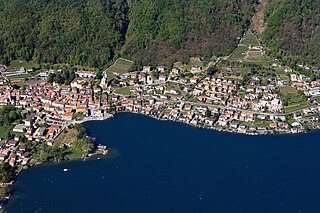
Riva San Vitale is a municipality in the canton of Ticino in Switzerland, located in the district of Mendrisio.

Elections to the Swiss Federal Assembly, the federal parliament of Switzerland, were held on Sunday, 21 October 2007. In a few cantons, a second round of the elections to the Council of States was held on 11 November, 18 November, and 25 November 2007. For the 48th legislative term of the federal parliament (2007–2011), voters in 26 cantons elected all 200 members of the National Council as well as 43 out of 46 members of the Council of States. The other three members of the Council of States for that term of service were elected at an earlier date.

Chiara Simoneschi-Cortesi is Swiss politician. A member of the Christian Democratic People's Party (PPD/CVP/PDC), she was elected to the National Council in 1999 and re-elected in 2003 and 2007. Simoneschi was President of the Swiss National Council in 2008/2009.
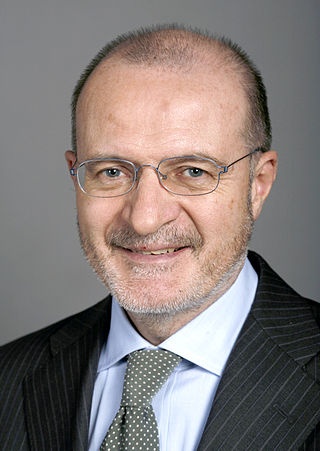
Fulvio Pelli is a Swiss politician. He was the last president of the Free Democratic Party prior to its merger with the Liberal Party of Switzerland. After the merger of the two parties, he served as the first president of FDP.The Liberals from 2009 to 2012. Pelli was a member of the Swiss National Council from 1995 to 2014. He served in the communal legislature of Lugano from 1980 to 1990 and in the Grand Council of Ticino from 1983 to 1995.

The Autonomous Socialist Party was a far-left political party in Switzerland, based in the canton of Ticino.
Alice Moretti was a Swiss politician. A member of the Free Democratic Party of Switzerland, she was one of the first eleven women elected served on the Grand Council of Ticino from 1971 when Switzerland eventually granted women the federal vote. She was elected alongside Marili Terribilini-Fluck, Elsa Franconi-Poretti, Linda Brenni, Elda Marazzi, Ersilia Fossati, Dina Paltenghi-Gardosi, Dionigia Duchini, Rosita Genardini, Rosita Mattei and Ilda Rossi. She served until 1987.
Pietro Martinelli is a Swiss engineer and communist politician.
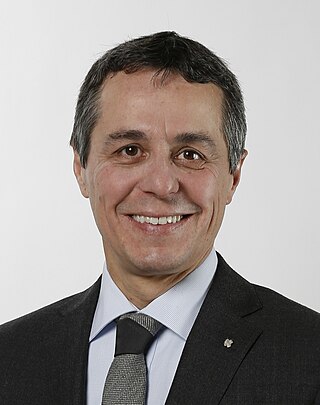
A by-election to the Swiss Federal Council was held on 20 September 2017, after federal councillor Didier Burkhalter (FDP-NE) announced he would leave the Council effective 31 October 2017. The by-election resulted in the election of Ignazio Cassis (FDP-TI), resulting in no change in the partisan composition of the council.
Ersilia Fossati was a Swiss politician from the canton of Ticino. She was a member of the Christian Democratic People's Party of Switzerland and a campaigner for women's suffrage. When Switzerland eventually granted women the federal vote on 7 February 1971, Fossati was one of the first eleven women elected to the Grand Council of Ticino in 1971.















